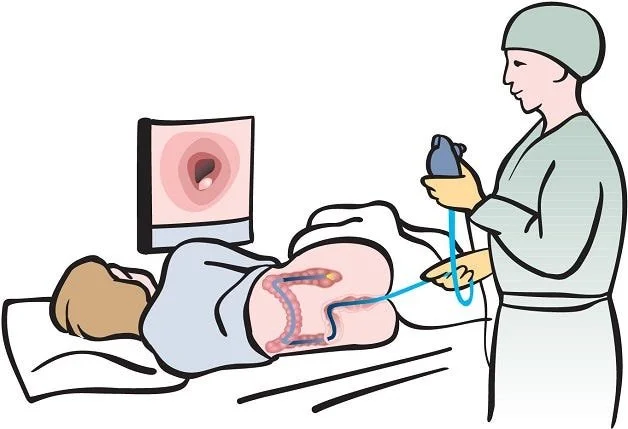Foot and ankle problems affect a wide range of adults, often impacting daily activities and mobility. Podiatrists specializing in wound care play a central role in diagnosing and managing these conditions, especially when they involve chronic wounds or injuries requiring advanced care. Here is more information on the role of podiatric wound care specialists, common foot and ankle conditions, treatment options, and indicators for when to seek professional care:
What Is a Wound Care Specialist in Podiatry?
A wound care specialist within the field of podiatry focuses on diagnosing and treating foot and ankle conditions, particularly wounds that are slow to heal or prone to complications. These professionals play a helpful role in managing injuries, ulcers, and infections that affect individuals with underlying conditions such as diabetes, circulation issues, or autoimmune disorders. Their expertise includes addressing wounds with advanced care techniques to facilitate healing while reducing the risk of infection or damage. This role combines preventive strategies and targeted treatments to manage foot and ankle health effectively.

What Are Common Foot and Ankle Problems?
Podiatrists encounter a wide range of conditions affecting the foot and ankle. These may include chronic wounds, diabetic foot ulcers, pressure sores, and traumatic injuries. Additional issues include plantar fasciitis, Achilles tendonitis, bunions, and stress fractures.
Individuals may also experience conditions that lead to discoloration, swelling, or restricted mobility in their feet or ankles. These symptoms may signal underlying problems requiring specialized care to prevent further complications. Consulting a specialist helps with diagnosis and treatment.
What Are the Available Treatments?
Specialized treatments for foot and ankle problems focus on addressing the condition’s symptoms and root causes. Options vary depending on the nature of the issue being treated. Here are some treatment options:
● Topical Medications and Antibiotic Therapy: Topical solutions help manage surface-level wounds, while antibiotics may address bacterial infections. These treatments are common for minor injuries or managing wound-related complications.
● Laser Therapy and PRP Injections: Laser therapy can promote healing and reduce inflammation in soft tissues, making it a valuable option for issues such as plantar fasciitis. Platelet-rich plasma (PRP) injections use components of your blood to accelerate tissue regeneration.
● Restorative Cell Treatments and Skin Grafting: For more complex or chronic wounds, restorative cell treatments and advanced skin grafting techniques are used to rebuild tissues. These are typically employed for injuries that do not respond to more conventional methods.
● Debridement and Customized Orthotics: Debridement involves the removal of dead or infected tissue to create an optimal healing environment. Customized orthotics or casts may also be provided to offload pressure points and support proper alignment.
● Advanced Wound Dressings: Modern wound dressings include options to keep wounds clean and moist. By creating a controlled healing environment, they reduce risks associated with infection and promote recovery.
When it comes to foot and ankle care, working with a podiatry specialist can make a difference in recovery and long-term health. From advanced wound treatments to tailored support like orthotics, these professionals provide solutions that address your specific needs. Learning more about podiatric care illuminates the benefits of specialized guidance regarding wounds and common foot problems. Contact your local podiatrist today to explore treatment options tailored to your condition and get back on your feet.
-
Common Types of Sports Injuries and How to Prevent Them
Staying active supports strength, balance, and mood, yet sports injuries interrupt training and daily life. These injuries range from minor tissue irritation to ligament tears. They arise from overuse, poor mechanics, sudden load, or inadequate recovery. Here are some typical problems and practical steps to lower risk: Sprains & Strains Sprains affect ligaments, while strains […]
-
How To Prepare for Your First OBGYN Appointment
An OBGYN specializes in women’s reproductive health, providing care that spans from routine checkups to pregnancy and menopause management. Preparing for your first OBGYN appointment can help you feel more comfortable, make sure your concerns are addressed, and make the most of your visit. Here’s how to prepare for your first OBGYN appointment: Gather Medical […]
-
How To Treat ADHD
Attention-deficit/hyperactivity disorder (ADHD) affects focus, impulse control, and activity levels. Symptoms often include distractibility, restlessness, and trouble organizing tasks. Diagnosis involves a clinical history, symptom checklists, and input from family or teachers. Treatment targets daily function and safety while addressing co-occurring issues such as anxiety or learning differences. No single pathway fits everyone, so approaches […]
-
What To Expect During Your Colonoscopy Procedure
A colonoscopy is a medical procedure used to examine the inner lining of the large intestine and rectum. It involves the use of a flexible tube with a camera, which allows direct visualization of the colon to identify abnormalities such as polyps, inflammation, or lesions. This procedure is regularly performed for screening, surveillance, and diagnostic […]
-
How Pacemakers Help Manage Arrhythmias and Improve Quality of Life
The human heart depends on precise electrical signals to maintain its rhythm. When those signals become irregular or unreliable, the result is often a condition known as arrhythmia. Left unmanaged, arrhythmias can cause uncomfortable symptoms and potentially disrupt daily activities. Pacemakers offer a reliable solution to regulating heart rhythms, providing patients with a path to […]
-
How To Choose the Right Psychiatrist for Your Needs
A psychiatrist is a medical doctor who specializes in diagnosing and treating mental health conditions. Unlike other mental health professionals, psychiatrists can prescribe medications in addition to offering therapy. Their training equips them to handle complex or overlapping conditions such as depression, anxiety, bipolar disorder, and schizophrenia. Finding the right psychiatrist often starts with identifying […]






Leave a Reply